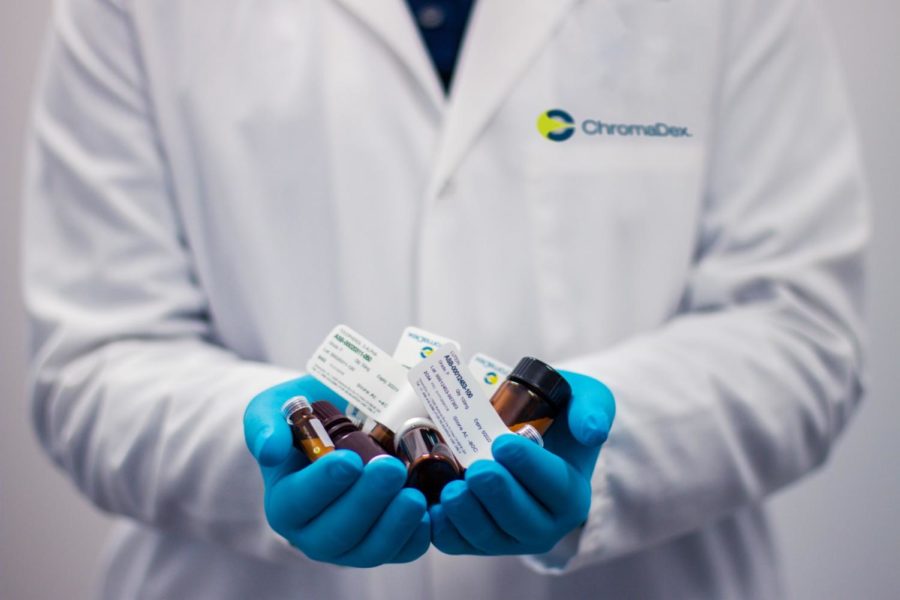Galloway: Limit pharmaceuticals, focus on nutrition
Columnist Noah Galloway believes doctors overprescribe because of their relationship with pharmaceutical representatives and argues that people should focus more on healthy eating instead.
May 19, 2021
I think we can all agree that consuming healthy foods is conducive to good health. Society tends to think attending the doctor’s office improves overall health, and there is truth to this. However, medical schools don’t necessarily believe nutrition plays a big role in achieving a healthy lifestyle.
The average four-year medical school spends only 19.6 hours providing medical students with nutritional information. The amount of time dedicated to nutritional knowledge needs to be at least quadrupled because unhealthy eating is clearly linked with health problems.
The current role of the doctor is to prescribe medication for illnesses, diseases and a variety of other minor ailments. In many cases, pharmaceuticals aren’t getting to the root of the problem; they are merely removing that issue by adding another complication — which is the drug itself. The illness may dissipate, but drugs have side effects. Meanwhile, healthy food doesn’t have side effects and it tackles the inherent health problem as a means to an end.
It is common throughout the health care industry that pharmaceutical representatives will buy lunch for medical professionals. Studies have shown drug companies that have strong relationships with medical workers will be more likely to be chosen as a prescription when drugs are offered to patients. Doctors are steered toward suggesting the newer and more expensive drugs when giving prescriptions. Older and less expensive drugs had pretty much the same effect on the patient without the monstrous cost.
There’s an old marketing adage of “getting them while they are young,” and it is spot-on with pharmaceutical representatives. A survey conducted of first-year and third-year medical students reported that pharmaceutical salesmen had begun pestering them. One-third of all first-year students had received gifts, and nearly four out of five third-year students had received gifts, too. It was very common for them to never have to pay for lunch.
Evidence points to doctors making unnecessary prescriptions of antibiotics. According to the Centers for Disease Control and Prevention, 47 million unnecessary antibiotic prescriptions are handed out every year, and almost half of all antibiotic prescriptions are deemed unnecessary. Rather than focusing on natural remedies for healing, pushing pills seems to be the easier route. However, shortcuts to bettering health include unwanted side effects, yet another example of adding problems on top of problems that don’t fix the root of the issue.
The problem should be fixed by the universities who create medical program curriculum. If this fails to happen, doctors, on an individual basis, should decide independently to make nutrition a focal point for taking care of patient needs. It’s unclear how much drug companies affect what doctors tell their patients. There’s a famous quote that mentions letting food be thy medicine.
There is a potential that pharmaceutical representatives are getting in the way of doctors providing honest advice to their patients. Drug companies cannot have a big influence over medical professionals. Medical schools must change the curriculum so drugs aren’t the answer to every issue.
Financial incentives dictate how doctors treat patients, and it has led to a health crisis in our country. It’s hard to know who to trust these days with all the nutrition misinformation out there, especially if our medical caretakers are leading us astray for their own personal gain. It’s incredibly disappointing because, without good health, it’s hard to enjoy much of anything in life.

















